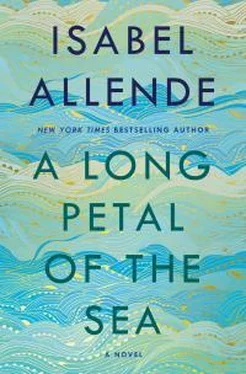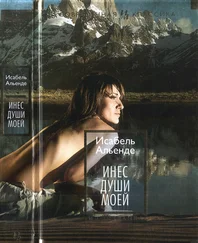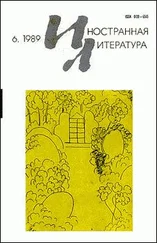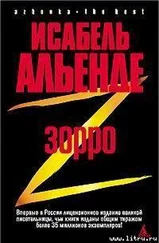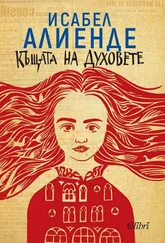Victor, Roser, and the other passengers and crew looked on in amazement at the system of sluices taking them from the Atlantic to the Pacific. The maneuvers were a miracle of precision in a space so narrow they could talk from the deck to the men working on land on both sides of the ship. Two of these men turned out to be Basque, and were entertained by the chorus of their fellow countrymen singing in Euskera. It was here in Panama that the migrants felt definitively cut off from Europe; the canal separated them from their homeland and their past.
“When will we be able to return to Spain?” Roser asked Victor.
“Soon, I hope. The Caudillo can’t live forever. But everything depends on the war.”
“Why is that?”
“War in Europe is imminent, Roser. It will be a war of ideologies and principles, a war between two ways of understanding the world and life, a war between democracy and Nazis and Fascists, between freedom and authoritarianism.”
“Franco will align Spain with Hitler. Which side will the Soviet Union be on?”
“It’s a democracy of the proletariat, but I don’t trust Stalin. He could ally himself with Hitler and become an even worse tyrant than Franco.”
“The Germans are invincible, Victor.”
“So they say. That remains to be seen.”
Those sailing for the first time in the Pacific Ocean were surprised at its name, because it wasn’t in the least peaceful. Like many others who thought they had gotten over their initial seasickness, Roser found herself laid low again by the fury of the waves, but Victor was scarcely affected. While the sea was so rough he was busy in the sick bay helping with the birth of another child.
After leaving behind Colombia and Ecuador, they entered Peruvian territorial waters. The temperature dropped because they were in the southern winter, and now that the tremendous heat had passed, the passengers’ spirits rose considerably. They were far from the Germans, and there was less possibility that Captain Pupin would change course.
Approaching their destination with a mixture of hope and fear, they realized from the news on the ship’s telegraph that in Chile opinions were divided, that their situation was the cause of heated discussions in Congress and the press, but they also learned there were plans to help house them and find them work from not only the government but left-wing parties, trade unions, and associations of Spanish immigrants who had arrived much earlier. They would not be left stranded.
CHAPTER 6
1939–1940
Slender is our homeland
and on its naked blade
burns our delicate banner.
—PABLO NERUDA
“Yes, comrade, it’s time for the garden”
THE SEA AND THE BELLS
AT THE END OF AUGUST, the Winnipeg arrived at Arica, the most northerly port in Chile. It was very different from the idea the refugees had of a South American country: there were no exuberant jungles or luminous, palm tree–lined beaches—it looked more like the Sahara Desert. They were told it had a temperate climate and was the driest inhabited region on earth. From the sea they could make out the coastline and a chain of purple mountains in the distance resembling brushstrokes of watercolor against a clear lavender sky. The ship anchored out to sea and shortly afterward a boat appeared, bringing officials from Immigration and the Consular Department of the Foreign Ministry. The captain gave up his cabin so that they could interview the passengers, provide them with identity papers and visas, and tell them which region of the country they were to reside in, according to their skills. In the narrow compartment, Victor and Roser, with Marcel in their arms, presented themselves to a young consular official named Matias Eyzaguirre, who was busy stamping all the visas and adding his signature.
“It states here that your place of residence will be in the province of Talca,” Matias explained. “But the idea that you’re told where you should settle is some nonsense dreamed up by the Immigration people. In Chile there’s absolute freedom of movement. Don’t pay any attention to it, go wherever you like.”
“Are you Basque, señor? From your name, I mean…” Victor asked him.
“My great-grandparents were Basque. Here we are all Chilean. Welcome to Chile.”
Matias Eyzaguirre had traveled by train to Arica to receive the ship, which arrived several days late due to the problem in Panama. He was one of the youngest members of the Consular Department, and had to accompany his boss. Neither of them was exactly pleased, because they were completely opposed to the policy of accepting the refugees into Chile. They considered them to be a mob of Reds, atheists, and possibly criminals, who were coming to take jobs from Chileans just at a moment when there was terrible unemployment and the country hadn’t yet recovered from the Great Depression or the recent earthquake—but they were determined to do their duty. When they reached the port, they’d boarded a rickety boat that struggled through the waves out to the Winnipeg, where they had to climb a rope ladder swaying in the wind, pulled up by some very rough French sailors. Once on board, Captain Pupin received them with a bottle of cognac and Cuban cigars.
The officials had heard that Pupin had undertaken this journey against his will and that he detested his human cargo, but he surprised them. It turned out that after sharing his vessel with the Spaniards for a month, Pupin had gradually altered his opinion of them, even though his political convictions were still intact. “These people have suffered a great deal, gentlemen. They are upright, disciplined, and respectful, and are coming to your country ready and willing to work and rebuild their lives,” he told them.
Matias Eyzaguirre came from a family that considered itself aristocratic, and had been brought up in a Catholic, conservative background. He was against immigration, but like Captain Pupin, when he came face-to-face with the individual refugees—men, women, and children—his views changed. He had been educated at a religious school, and lived his life protected by the privileges his clan enjoyed. His grandfather and father were Supreme Court judges, and two of his brothers were lawyers, so he studied law as his family expected, even though he was not cut out for the profession. He doggedly attended university for a couple of years, and then entered the Foreign Ministry thanks to his family connections. He started from the bottom and by the age of twenty-four, when he found himself stamping visas on the Winnipeg, he had already shown he had the makings of a good public servant and diplomat. In a couple of months he was being sent to Paraguay on his first foreign mission, and he was hoping to do so married, or at least engaged, to his cousin Ofelia del Solar.
The documentation complete, a dozen passengers were taken off the ship, as there was work for them in the north, and then the Winnipeg sailed on toward the south of Neruda’s “long petal.” The Spanish exiles were agog with silent expectation. On September 2, they glimpsed the outline of Valparaiso, their final destination, and at nightfall the ship dropped anchor outside the harbor. The passengers’ anxiety came close to collective hysteria: more than two thousand eager faces crowded onto the upper deck, waiting for the moment to set foot on this unknown land. However, the port authorities decided that the disembarkation should take place the next day, with early morning light and a calmer atmosphere.
Thousands of twinkling lights in the port and dwellings on the hills of Valparaiso competed with the stars: it was impossible to tell where the promised land ended and the sky began. Valparaiso was an idiosyncratic city of stairways, elevators, and narrow streets wide enough only for donkeys. Houses hung dizzily from steep hillsides; like almost all ports, it was full of stray dogs, was poor and dirty, a place of traders, sailors, and vices, and yet it was marvelous. From the ship it shone like a mythical, diamond-studded city. Nobody went to sleep that night: they all stayed out on deck admiring the magical spectacle and counting the hours. In the years to come, Victor would always remember that night as one of the most beautiful in his life. The next morning, the Winnipeg finally docked in Chile, with the enormous banner of President Pedro Aguirre Cerda and a Chilean flag draped from its side.
Читать дальше
